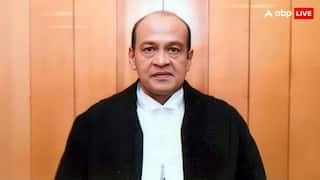How The Killing Of 11 Terrorists In Manipur Can Send A Strong Message I OPINION

This week, security forces succeeded in neutralizing 11 terrorists, reportedly belonging to the Kuki-Zo community, in Jiribam, a district in the northeastern state of Manipur. As expected, the Kuki-Zo community has described these individuals as “village volunteers” and slammed the actions of the central security forces.
According to reports, the Kuki-Zo terrorists attacked the Borobekra police station, which houses a camp for Meitei refugees, as well as a nearby CRPF camp. When security forces retaliated, 11 of the militants, accused of terrorising the Meitei community, were killed. This raises questions: Are they truly “village volunteers”? Should the central forces not retaliate when attacked?
It is deeply concerning to label these 11 individuals as “village volunteers” when they allegedly killed two Meitei refugees and abducted six others from the camp. The abducted individuals—three women and three minors—remain untraceable, sparking anger in the Meitei-dominated valley.
As previously highlighted in this column, the ground situation remains highly polarised between the Meiteis and the Kuki-Zo community since ethnic violence broke out between the two groups last year. Amid the breakdown of the security system and a growing sense of insecurity, both communities are reportedly supporting armed militias. Militants from both sides are exploiting this polarization to expand their ranks.
While dialogue is essential to bridge the divide between the Meiteis and Kuki-Zo communities, it is equally crucial to prevent militants on either side from exploiting the situation. The recent strong action by security forces in Jiribam is significant in this context.
However, allegations of bias against the security forces persist. The Meitei community has expressed dissatisfaction with central forces such as the Assam Rifles and BSF, while the Kuki-Zo people have openly distrusted the Meitei-dominated state police. In this fraught atmosphere, the neutralization of 11 terrorists from the Kuki-Zo community could potentially restore some faith among the Meiteis in the central forces.
Nonetheless, the incident underscores the immense challenges facing security forces in Manipur. The killing of terrorists, coupled with the community support they received, the deaths of two Meitei refugees, and the abduction of six others, highlights the complex dynamics at play. Central and state forces must collaborate to act decisively against militants from both communities while protecting innocent civilians.
The Centre must closely monitor the situation, ensuring that security forces operate without bias while taking strong action against militants. However, the Centre’s response so far appears insufficient. More proactive measures are needed to address the crisis in Manipur.
TIPRA Motha Leaders Admit Role In BJP’s 2023 Election Victory
In a surprising revelation, leaders of the TIPRA Motha party have acknowledged their indirect role in helping the BJP return to power in the 2023 Tripura Assembly elections. This was reported in Dainik Sambad, a leading daily in the state, on November 13.
The report highlighted a recent procession by the Youth Tipra Federation, the youth wing of TIPRA Motha, in Ambassa. Following the procession, a seminar was held at Ambassa Town Hall, attended by several party leaders, including party president Bijoy Kumar Hrangkhawl, MLA Paul Dangshu, and TTAADC officials Suhel Debbarma and Hongsho Kumar Tripura.
The most notable aspect of the report was the admission by party leaders that the BJP would not have returned to power without TIPRA Motha’s help in the 2023 elections — a claim frequently made by the Opposition, particularly the CPI(M). TIPRA Motha fielded candidates in 22 non-Scheduled Tribes seats, despite having no realistic chance of winning, allegedly to split the anti-BJP vote.
While the report did not name specific leaders who made this admission, it underscores the growing difficulty TIPRA Motha faces in distancing itself from the accusations of collusion. Furthermore, the party has faced criticism for its governance of the Tripura Tribal Areas Autonomous District Council (TTAADC). Despite over three years in power, TIPRA Motha has been accused of neglecting key areas such as education. For instance, a report from TripuraInfo in August revealed that 223 schools under TTAADC administration had only one teacher each.
This revelation reinforces concerns that while TIPRA Motha rose on tribal sentiments, it has struggled to address the basic needs of the tribal population.
NSCN-IM Threatens to End Ceasefire Amid Peace Talk Stalemate
The Nagaland Cabinet is set to discuss the recent statement by the National Socialist Council of Nagaland (Isak-Muivah) [NSCN-IM], which has threatened to withdraw from peace talks. According to Northeast Live, this development comes as Manipur continues to grapple with ethnic violence and instability.
The Centre and NSCN-IM signed a ceasefire in 1997, initiating peace talks that culminated in the signing of the Naga Peace Accord in 2015. However, progress has stalled due to NSCN-IM’s demands for a separate Naga constitution and flag, which the Centre deems unacceptable.
A faction of the Naga community, represented by the Naga National Political Groups (NNPGs), is in favour of settling for what the Centre has offered. However, NSCN-IM’s latest threat appears to be a strategic move to exert pressure on the Centre.
While the outcome of the Cabinet’s discussion remains uncertain, it is clear that an armed resistance will not benefit ordinary Nagas seeking a peaceful resolution. The state government must act as a bridge between NSCN-IM and the Centre, facilitating a resolution that respects the aspirations of the people.
The author is a political commentator.
[Disclaimer: The opinions, beliefs, and views expressed by the various authors and forum participants on this website are personal and do not reflect the opinions, beliefs, and views of ABP Network Pvt. Ltd.]


























